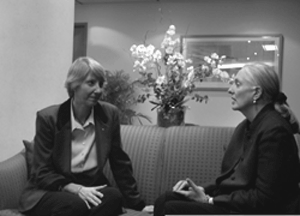|
|
|
The Role of the Coach
The role of the coach is not to tell clients how to do their job. The coach assumes the client has the required business and industrial expertise to get the job done.
However, technical know how alone is rarely considered sufficient these days to gain credibility as a leader. Human factors, often described as emotional intelligence, play the critical role in sustaining competitive advantage for the leader. A coach can help master areas such as creating business impact, enhancing client relationships, team motivation, managing organizational change, effective communications and cultural alignment.
The coach acts as a mirror, but one that answers back!
A coach constantly questions and probes a leader to ensure that they have thought through the implications of their actions, uncovered all the angles on a problem, seen their blind-spots, tested their assumptions, confronted their inhibitions, committed to effective action, did what they said they would do, and then reflect how they could do it all better next time.
By partnering with the leader to expand their capacity to address these issues, the coach creates high long-term impact within the organization.
